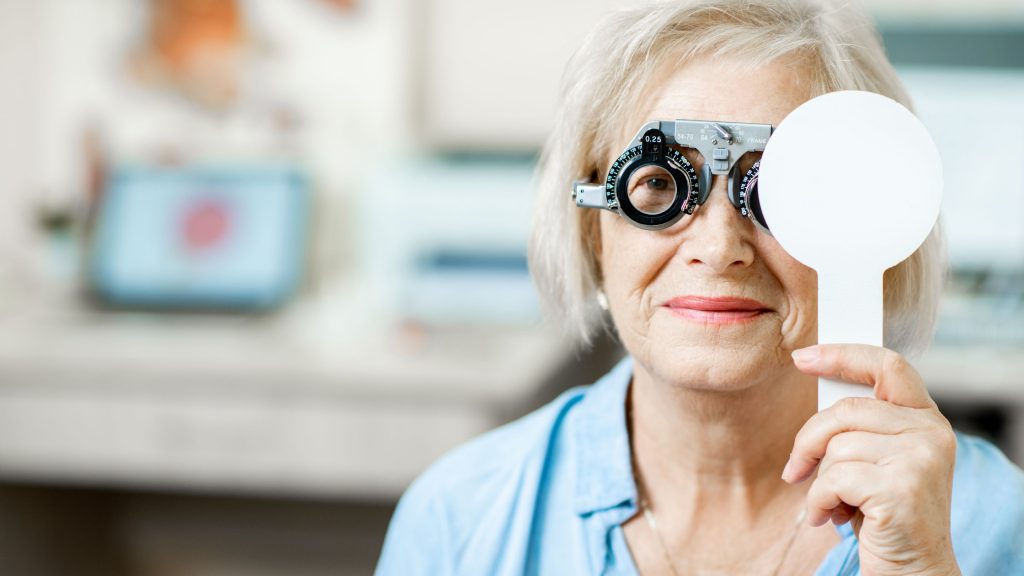As we age, our bodies go through numerous transformations, and our eyes are no exception. Sudden changes in vision are a natural aspect of aging. Understanding the common eye conditions that come with aging can help us better prepare and care for our vision as the years go by.
In this blog, we will delve into the most prevalent age-related vision changes and share tips on how to maintain good eye health as you grow older.
Common Age-Related Vision Changes
Presbyopia
Presbyopia typically affects individuals over 40. It arises from the hardening of the eye’s lens, which makes it challenging to focus on close objects. Symptoms include difficulty reading small text, eye strain, and headaches. Thankfully, this condition can be corrected with reading glasses, bifocals, or progressive lenses.
Cataracts
Cataracts often develop with age and result in clouded lenses, causing blurred vision, light sensitivity, and difficulty with night vision. Surgery is the go-to treatment, where the cloudy lens is replaced with an artificial one. Regular eye exams are essential to detect cataracts early and mitigate severe vision impairment.
Age-Related Macular Degeneration (AMD)
AMD targets the macula, the central part of the retina, and is a leading cause of vision loss in those over 50. It manifests as blurred or wavy vision, difficulty seeing in low light, and blind spots in the central visual field. While AMD lacks a cure, timely detection and treatment can slow its progression and help preserve vision.
Glaucoma
Glaucoma encompasses various eye conditions that damage the optic nerve, leading to vision loss. Dubbed the “silent thief of sight,” it often develops unnoticed until significant vision loss occurs. Regular eye exams are vital for early detection and treatment, which can range from eye drops and medication to surgery.
Diabetic Retinopathy
Primarily affecting those with diabetes, diabetic retinopathy is caused by high blood sugar damaging retinal blood vessels, resulting in vision loss. Symptoms include blurry vision, floaters, and difficulties seeing at night. Managing blood sugar levels and consistent eye exams are crucial for preventing and managing this condition.
Tips for Caring for Aging Eyes
Here are some essential tips on maintaining clear vision as you age:
- Regular Eye Exams
Regular check-ups are crucial for maintaining optimal eye health. Early detection of vision problems can prevent them from worsening. It’s advisable to have an eye exam every 1-2 years, especially if you have a family history of eye conditions or conditions like diabetes.
- Protect Your Eyes from UV Rays
UV rays can harm your eyes, contributing to conditions such as cataracts and macular degeneration. Always wear sunglasses with 100% UV protection when outside. Additionally, a wide-brimmed hat can further shield your eyes from the sun.
- Maintain a Healthy Diet
Eating a balanced diet is vital for eye health. Foods high in antioxidants, vitamins A, C, and E, and omega-3 fatty acids can help prevent age-related vision problems. Include leafy greens, fish, nuts, and citrus fruits in your meals.
- Quit Smoking
Smoking adversely affects overall health, including your eyes. It raises the risk of cataracts, macular degeneration, and other eye issues. Quitting smoking can significantly lower your risk of vision-related problems and improve your general health.
- Check Medications for Vision Side Effects
Certain medications, such as Accutane, can cause vision changes. It’s important to discuss potential side effects with your doctor and schedule regular eye exams to monitor any vision alterations.
- Stay Physically Active
Exercise benefits not just your body but your eyes too. It enhances blood flow to the eyes, reducing risks of glaucoma and macular degeneration. It also helps manage diabetes, which can have adverse effects on eye health.
Conclusion
Maintaining good eye health as we age involves regular eye exams, protecting our eyes from UV rays, eating a nutritious diet, and staying active. By adhering to these guidelines, we can prevent or manage age-related vision changes and safeguard our eyesight for many years to come.
